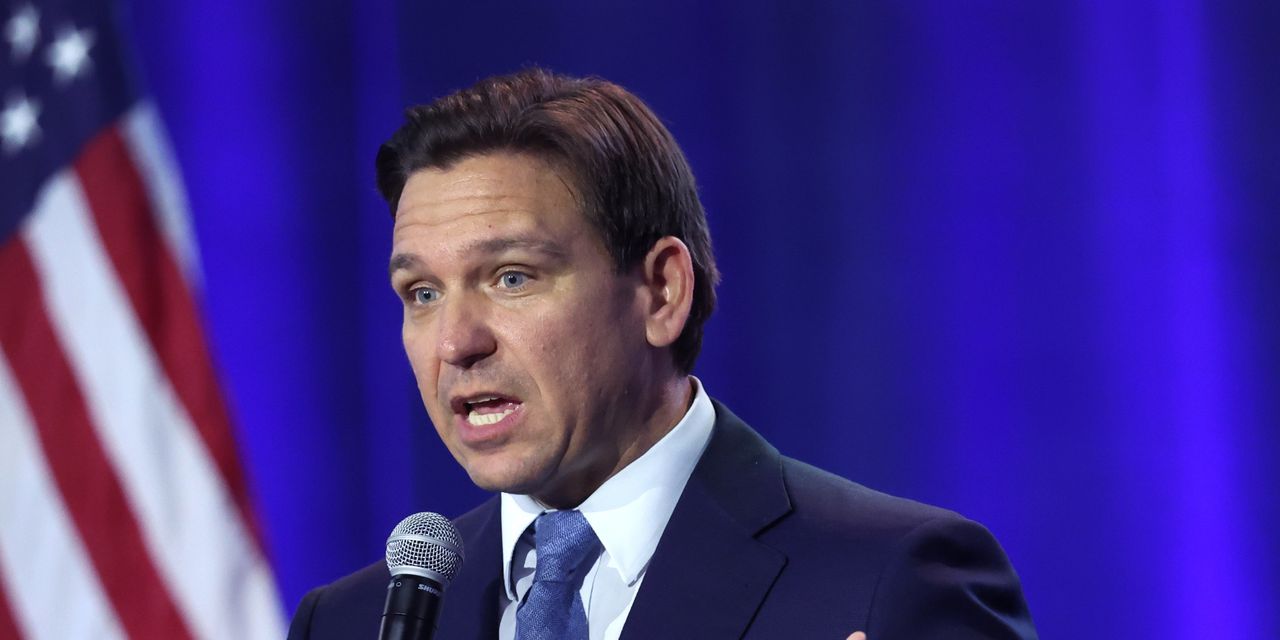Heading into the first Republican presidential primary debate, the party is split into four troupes: 1. the anti- but nonetheless Trump-obsessed (former New Jersey Gov. Chris Christie, former Vice President Mike Pence); 2. the Trump-alternatives (Florida Gov. Ron DeSantis, entrepreneur Vivek Ramaswamy); 3. the shadow candidates megadonors hope will enter the race if Trump drops out (Govs. Glenn Youngkin of Virginia, Brian Kemp of Georgia and Chris Sununu of New Hampshire); and finally, 4. Donald Trump himself.
See: What time the debate starts, and how to watch
The first two cohorts, who are primarily known for their social conservatism, will be on the debate stage in Milwaukee, while the latter two will not be there at all. This is a smart move for Trump as it sets his next-closest competitor, DeSantis, up for a cage match which could well take him out of the race entirely. It also means that the more-conservative spectrum of Republicanism will be on the stage alone, championing positions like a six-week abortion ban that 73% of Americans oppose. It may not seem like it, but the Republican Party’s position on abortion will have a direct impact on the most important aspect of the global economy right now: the Federal Reserve’s interest-rate strategy and U.S. tax policy.
Now read: Non-Trump Republican presidential candidates to try for ‘breakout moment’ in this week’s debate
Republican megadonors aren’t secretly courting presidential alternatives because DeSantis isn’t great at retail politicking and Trump has been a drag on the Republican ticket, particularly in the Senate, since 2018. It’s because the Ohio referendum on abortion earlier this month drew three million voters, in August, to overwhelmingly reject the Republican platform. And that’s not because abortion is critical to a billionaire, it’s because in 2025, whoever wins the next election gets to write the most consequential tax bill of the next decade.
From the archives (March 2023): TaxWatch: Biden’s tax hikes on high earners are unlikely to make it through Congress. A bigger debate: the Trump-era tax cuts that expire in 2025.
At a minimum, three trillion dollars’ worth of tax changes are coming for individuals and corporations. Raise taxes and reduce deficit spending, and the Fed can potentially stop hiking interest rates. Cut taxes, as Trump famously championed the very day the 2017 Tax Cuts and Jobs Act was enacted, and the Fed has to offset trillions in government spending. Every industry is exposed, from hedge funds and banks
XLF
to clean energy
ICLN
and cannabis
MJ.
The more time Republicans spend fighting over how to solve a problem like Donald Trump instead of on tax and economic policy, the more time Democrats have to make the race about abortion. This is how Democrats beat all odds in 2022, in an 8.5% inflation environment, and picked up that Georgia Senate seat, again.
In One Chart: Here are the Republicans running for president in 2024, as their first debate looms
There are nine at-risk Democrats in the Senate this cycle and none of the 10 Republicans up for reelection are remotely at risk. 2024 should be the year Republicans pick up enough seats to pass not one but two so-called reconciliation bills — both of which could come just as the Tax Cuts and Jobs Act expires, giving them both momentum and a vehicle to reform the tax code and the U.S. economy. The 21% corporate and every individual tax bracket is at risk and the deficit is almost certain to balloon by a minimum of $2 trillion to cover the cost of their extension.
But instead of engaging in that debate, the candidates on the podium Wednesday will relive the same “To Trump or Not to Trump” cycle, which will keep conservatism and social issues front and center.
Also read: DeSantis’s retaliation against Disney hurts Florida, former lawmakers say in amicus filing
In doing so, Republicans are missing the bigger issue: that abortion is aggressively driving voters of all stripes to the polls and they are voting against the Republican Party en masse. If Republicans care about tax policy and want to run the table in 2025 to stop the Fed from hiking interest rates, they are in a position to do so. But as long as the fight is about Trump and abortion, it’ll never be about interest rates and tax policy.
Henrietta Treyz is the director of economic policy and managing partner of Veda Partners, an investment research provider based in Washington, D.C.
Read the full article here








